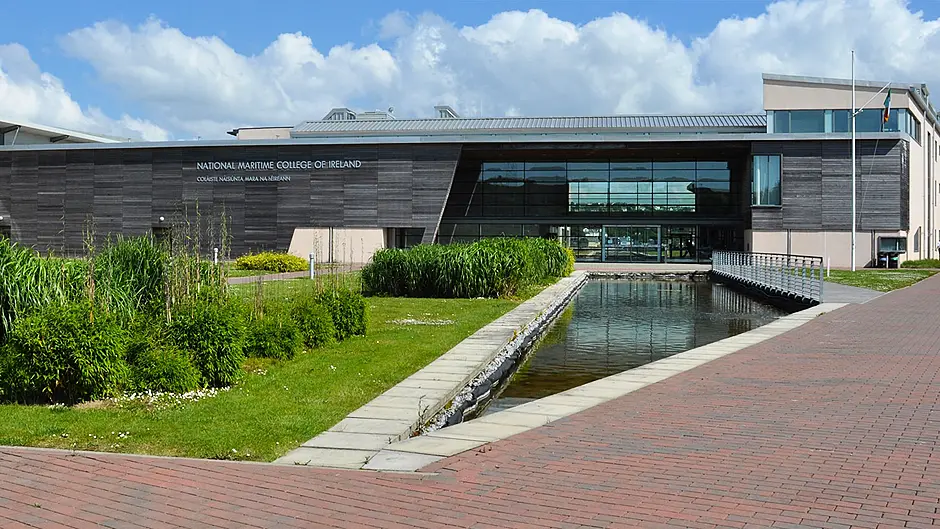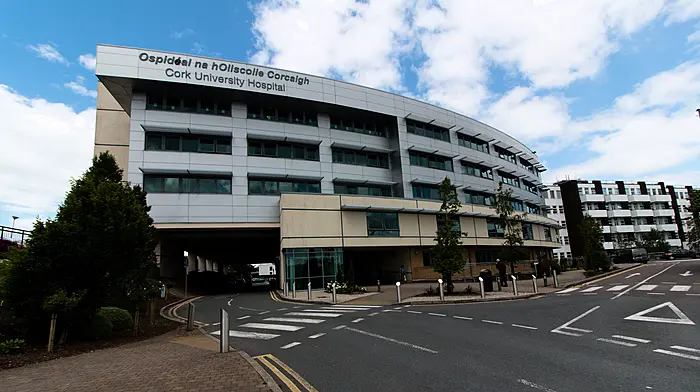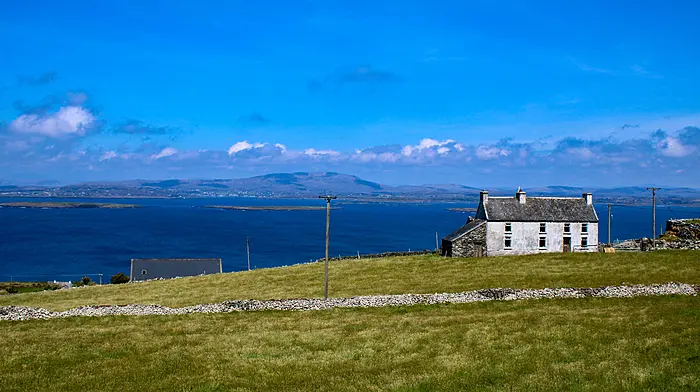It was once Ireland’s ‘best kept secret’ but a massive push for floating windfarms and other energy developments off the Irish coast will be a game-changer for the NMCI, says college head Cormac Gebruers
THE National Maritime College of Ireland (NMCI), a stylish, modern campus in Ringaskiddy, has an enviable track record amongst third levels in Ireland – it has a 100% employment rate for its graduates.
It was also one of the first colleges to be back in business after total lockdown, because so many of its students work in, or are training for, the health and safety sector and classed as ‘frontline’ workers.
‘For example, we have navy divers, Coast Guard personnel, the national ambulance service, and fire service staff here – and don’t forget that ship staff are classed “essential workers”, too,’ explains college head Cormac Gebruers.Despite his unusual surname, Cormac is born and bred Cork – in Cobh in fact, a town with as strong a maritime history as any town in Ireland.
The sea is in his veins, you could say. And he is, quite clearly, a man who loves his work.
‘We used to say that this was Ireland’s best kept secret – but not anymore,’ he says of the college, which is a constituent college of Munster Technological University (MTU, formerly CIT), and is operated under a 25-year public private partnership. It also has a partnership with the Irish Naval Service.
It has up to 400 students at any one time, and graduates about 3,500 a year, qualified or upskilled for a wide variety of careers, in the navy, academia, the fishing and oil industries, as skippers, ships’ pilots, deck hands, marine engineers, chefs, and even superyacht crew.
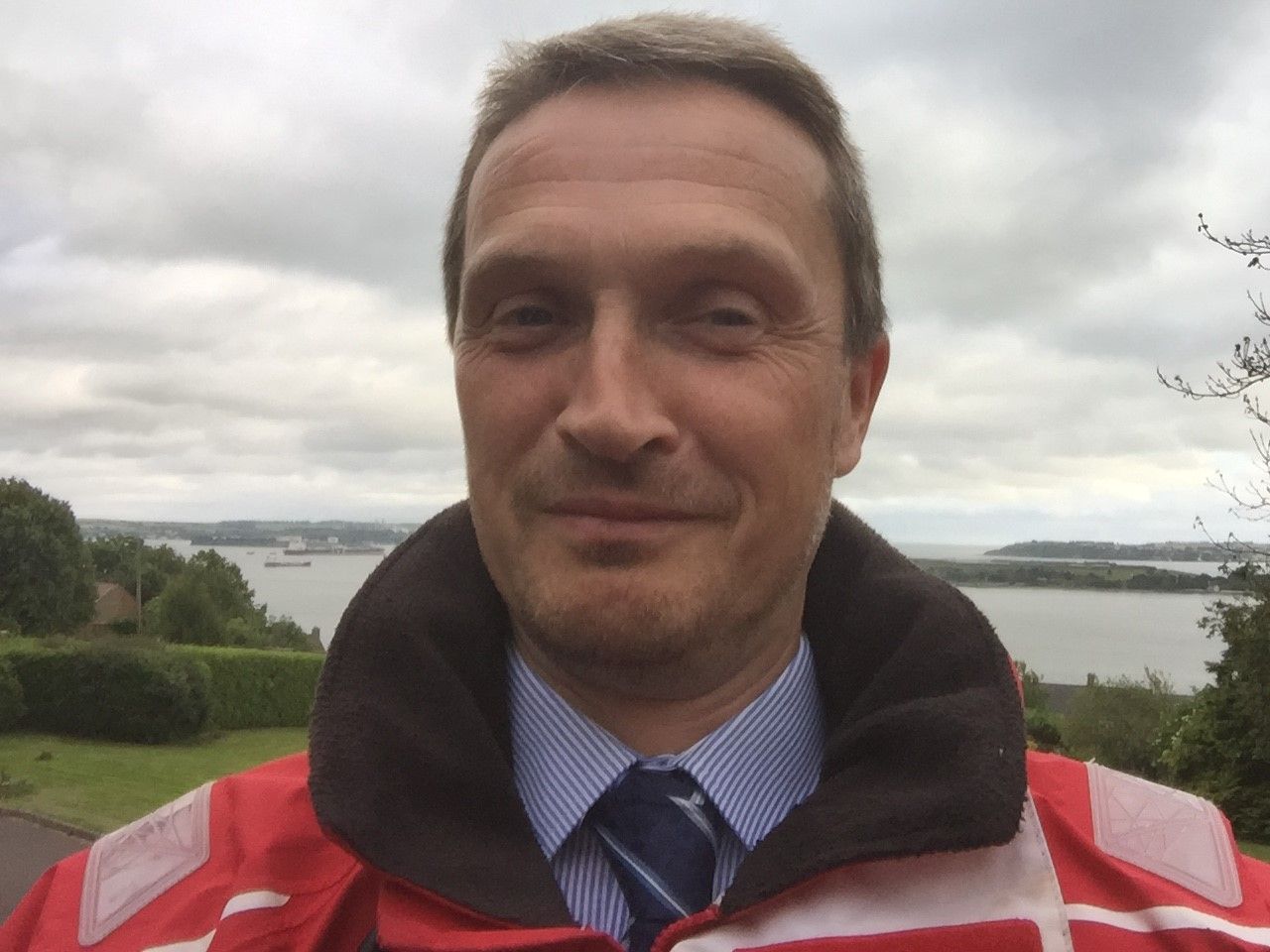 Cobh man Cormac Gebruers says the expansion of the energy sector offshore offers huge opportunities for the college, which will be poised to train the staff working at sea.
Cobh man Cormac Gebruers says the expansion of the energy sector offshore offers huge opportunities for the college, which will be poised to train the staff working at sea.
But the reason its ‘secret’ status is about to change – rapidly – is largely due to the increased focus on the offshore renewable sector.
Several large scale windfarms are being planned off the south and west coasts as the government rushes to meet carbon emission targets.
All of these offshore farms will need highly trained staff, men and women – not just skilled in their own professions – but also with up-to-date health and safety accreditation.
And there is nowhere else in Ireland able to offer this training, says Cormac.
‘I think this will finally put us on the map – the whole ambit of training will fall onto us and in terms of facilities, we will need to be tooled up.’
That’s a nod to the fact that the college is likely to benefit from the surge in interest in offshore energy, by having to expand and invest to meet the demands of the rapidly expanding sector.
‘Because we provide education and training of people going out to sea – this represents a huge opportunity for us. The one area that will be very significant for us is the area of the floating windmills, because that is a relatively new sector. And I think we could be selling our expertise all over the world because some of the earliest commercial deployment of this could be in Ireland. At the NMCI, we can provide that expert maritime knowledge and expertise for many other projects.’
‘We always say to our students “our ground is always moving”, so health and safety is very important.’
The college open day in November usually sees up to 1200 school children on campus to see the impressive facilities – including a state-of-the-art wave pool – and to meet various potential employers, including big shipping companies and the likes of the navy, RNLI, Coast Guard, and more.
‘What I always find interesting is that, in recent years in particular, the students are asking the companies all about climate change and their responses to it, and that is very encouraging,’ says Cormac.
Currently, the CAO is the only level of entry for the college, but there are plans to expand it to include programmes similar to apprenticeships and feeder courses, to increase the range of students on campus.
And Cormac points out, interestingly, that a fear of the sea need not necessarily be a barrier to a maritime career! ‘We like to point out that there are also options for onshore careers – the maritime sector is not, actually, all offshore! There’s also maritime law, finance, the supply chain onshore, maintenance etc. Just like aviation, which is not just about flying, maritime is not just about being at sea.’
The college was aware of the impact of Covid ahead of most other institutions in Ireland, because it had students working close to the original break-outs in Asia. ‘We first heard about Covid being serious in early February because we had a student who noticed something very serious was happening in the cruise ship sector in Asia – and we had cadets on ships belonging to the same company that was caught up in those early cruise ship cases,’ the Cobh man recalls. ‘I suppose what is unusual about this college is that your students are always working 24/7, 365 days a year and are up to 15 months away from home, so you are never really off duty, because your students are all over the world, all the time.’
With the virus spreading on the other side of the world, the college knew it had to get it students back home, as quickly as possible. ‘We were among the first in Ireland to be aware of the scale of it – we had to get a cadet out and we also had to make sure our frontline students could complete their seafaring certificates.
‘The college is filled with people on the frontline with mission-critical compliance, so we have very well developed and refined systems for scenario determinations, like this.
‘All that training came to the fore and we are extra proud of how management performed here – we know how to do this, we have been trained to manage in a crisis, and we have been in that mode now for 17 months.
‘People are exhausted, but our students and staff performed excellently and we are so proud of them. After shutdown we were back online within four days, thanks to and to MTU [which was then CIT]. Our technology-enhanced learning unit at MTU are consummate professionals, and we were all back up and running in four days.
‘By May 18th all our frontline staff were fully involved in helping us to identify suitable protocols for the college, and the navy tested those protocols.
‘We worked all through the summer and through lockdown with a hybrid version where we had to bring some people in here because you cannot teach somebody how to fight a fire with a PowerPoint presentation. It was testament to how well it worked out that we had an incredibly small number of Covid cases,’ he points out.
‘We spent from last St Stephen’s Day on crisis calls and all our exams went online in January – so the last break we have had really as a team was Christmas 2019, because we had no break in summer 2020 and no break at Christmas 2021.
‘Whenever I tried to give credit to our staff, they just said “the guys in the HSE are the ones who deserve the credit, we got it easy”. I think our students have become young philosophers because their sequence of education and training has been eroded and thrown out of kilter, but they have just been brilliant,’ says Cormac. ‘I suppose the silver lining is to see how positive it has all been – it’s a great insight into people and shows they are a particular type of breed in the marine sector.’
Another change in the global maritime sector which will impact on the NMCI is what Cormac calls the ‘Europeanisation’ of shipping.
‘There is more construction of shipping in Europe again now, as opposed to Asia, where up to now all the major shipbuilding was being done,’ he says.
‘But I would really love to see a European pool of seafaring cadets where we could pool our students and be able to send them to various locations around Europe. That is something that I want to begin to try and negotiate – we are a small country and no threat to anyone, so we are in a great position to make that happen. Another element that I see a lot of is an interest in ethical recycling of shipping.’
There is a move, now, to ensure that all newly built ships are more easily recycled. ‘We call it the ‘greening’ of shipping and it is being driven by the students. And if you can sustainably recycle a ship, it makes the construction costs quite achievable. It is quite a topic of conversation at the moment – like the ‘right to repair’ conversation, and I think that’s great. Seafarers are custodians of the oceans and they are better placed to take care of them and to police them.’
It’s another example of the modernisation of the sector, and the college also proudly flew its Pride flag during Pride month.
The campus itself is welcoming and bright, and perfectly situated beside UCC’s Beaufort Building, which houses its marine and energy research labs. Over the nearby bridge is Haulbowline island, home to the Irish navy and Cork County Council’s new eco-friendly amenity park.
‘We have a good connection with UCC beside us – although they train the marine scientists, we are the ones who send them to sea, so we will do their safety training. The two campuses are very closely linked and work very well together,’ says Cormac.
The college is also eyeing up ways it can increase its gender balance of students. ‘While almost half of our management team is female, the sector in general is only represented by 10-15% of females. And that is similar to our student intake at the moment – we would like to see a lot more women. But as Stem (engineering and maths sciences) is part of us here, that is part of a challenge,’ he says, reflecting the imbalance in students taking up Stem subjects at second level.
‘One of our approaches is to be more proactive with career guidance counsellors. The one thing we can say here is that we always get 100% of employment for our students, but it is a calling – something of a vocation.
‘You have to think do you like being outdoors, do you like problem-solving, do you like working with people? But are you self-sufficient to work on your own, if needs be. Our three most popular courses are marine engineering, marine electro technology and nautical science. We are the only institution on the island of Ireland that delivers these and these are the main standards for seafarers.’
The issue of plastic at sea, and increasing pollution is a topic that the maritime industry cannot overlook, either.
But Cormac says there are a lot of good people in the industry, doing it for the right reasons. ‘For example, it is great to see the work being done on the Cobh main drainage scheme, so a lot of good things are happening. It is about finding the balance and keeping some sense of perspective – we have more information in the world than we have ever had and we are struggling a bit with that, but we must remember that we are citizens of Planet Earth.’
He says he is buoyed by the positivity of the next generation who have the health of the planet very much on their agenda and is enthused by their energy.
‘The hardest thing for me was not to have on-site graduations, because that is really the day that makes it all worth it. What I see here every day gives me great reason to have hope – the future looks very hopeful,’ he says.
It seems Ireland’s best kept secret is no great secret anymore.
Superyachts on the horizon
One sector that is growing, and seen as the ‘glamour’ end of the industry, is the superyacht crewing sector. Hit TV shows like Below Deck have made the sector almost sexy, although the work is hard.
It is an area that the NCMI has dipped into, but Cormac believe there is scope for expansion here, too, especially given the success of the affable Irish in the global hospitality sector.
The NCMI delivers crew trained in the silver service and catering sector for the cruise industry and the superyacht sector.
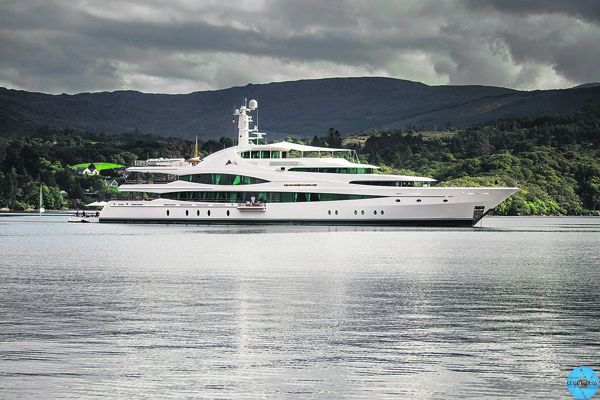 The Lady Christine anchored off Glengarriff in August 2017. The NMCI trains crew for yachts such as this one.
The Lady Christine anchored off Glengarriff in August 2017. The NMCI trains crew for yachts such as this one.(Photo: Lyne Media)
‘There is a global regulatory framework for the superyachts which the UK has embraced, but lots of other countries have not. We have done a certain amount in the area, but we are not yet on the navigation or engineering end of the super yachts. But I do think that there is significant potential here, particularly around hospitality.’
But he says that until the regulatory end is straightened out, the college is not too keen on getting more involved. ‘It is definitely an exciting and significant sector, and has become very attractive in the last five to six years. About 5-10% of our students have moved into the superyacht sector. One of the things we tell people is “one hand for the ship, and one hand for yourself” because, like I say, the ground is always moving!’
The sea is the limit
THE NMCI is a public private partnership (PPP) arrangement which will be handed back to the State in seven years’ time – making it the first educational facility in Ireland to be handed back after a PPP arrangement.
Cormac Gebruers believes this offers a major opportunity for the college to forge its way in a sector that is about be become even more important to the Irish economy.
Offshore energy is the new ‘buzz’ phrase and the college can now position itself as the premier educational space for that growth area.
While the college was established in 2004, many of its most popular courses had been on offer in Cork for many years, originally via the RTC in Bishopstown, which subsequently became CIT and now MTU.
And a number of announcements this week have shown the massive opportunities on the horizon for the college.
The Maritime Area Planning Bill 2021 was published earlier this week which will put in place a comprehensive and coherent planning system for the entire maritime area. It will also mean the establishment of a new agency, the Maritime Area Regulatory Authority (MARA) to manage the occupation of the maritime area and to enforce the provisions of the new regime.
At the Bill’s publication, Minister Eamon Ryan said that offshore wind resources represent a real opportunity for Ireland to break free from fossil fuels and reach its climate goals.
Some weeks ago massive plans for an energy plant on Whiddy Island were unveiled, and last week ESB and dCarbonX launched plans to develop large-scale storage for green hydrogen off the coast of Kinsale.
The project – pending licence and planning approvals – could have the potential to store up to three TWh of green hydrogen and hydrogen carriers, the equivalent of approximately 10% of current Irish annual electricity consumption.
In response, Cormac Gebruers told The Southern Star: ‘Anyone working on those offshore locations, including those for wind-generated electricity, will have to be trained for going to sea, chances are by NMCI. Any energy produced that’s exported internationally will go either by pipeline and/or by ship.’
He added: ‘In Whiddy, for example, if the energy is transported by ship, then that will represent additional port jobs eg stevedores, harbour pilots, ship’s officer jobs, jobs on the ships, and so on. All these people could well end up being trained at NMCI.’

